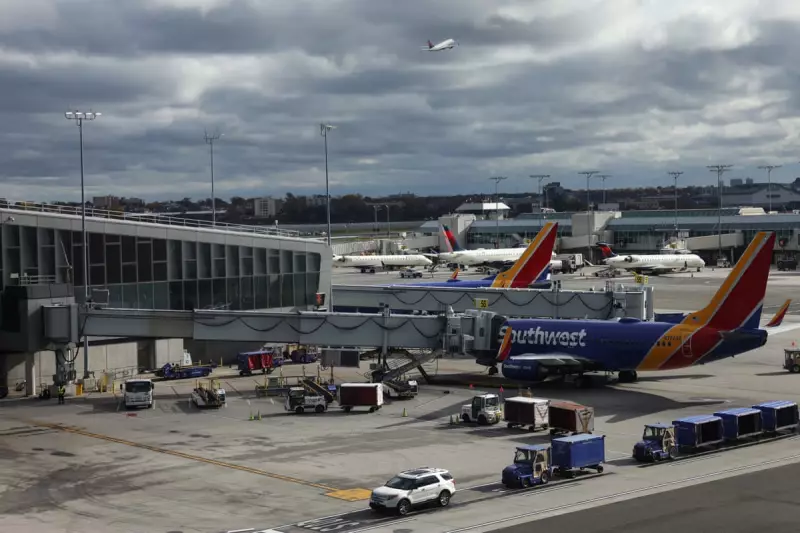
Major travel disruption is sweeping across United States airports as a partial government shutdown forces thousands of critical aviation workers to work without pay, creating a perfect storm of delays and frustration for passengers.
Security Checkpoints Grind to a Halt
Transportation Security Administration (TSA) agents, who are deemed essential personnel, continue screening passengers despite not receiving their salaries. This has led to staffing shortages as some employees call in sick or seek temporary employment elsewhere. The result? Security queues stretching through terminal buildings and significant delays at checkpoints in major hubs including Atlanta, Dallas, and Denver.
Air Traffic Control Under Pressure
The situation is equally concerning in control towers and radar facilities nationwide. Air traffic controllers, also working without pay, face immense pressure managing the nation's crowded airspace. While safety remains uncompromised, the strain on these essential workers is causing ripple effects throughout the aviation system.
Passenger Frustration Mounts
Travellers are bearing the brunt of the political impasse. Many are reporting:
- Security wait times exceeding two hours
- Missed connections and cancelled flights
- Limited information about delay durations
- Growing concerns about holiday travel plans
Economic Impact Spreads
The aviation slowdown represents just one facet of the shutdown's economic consequences. With nearly 800,000 federal employees furloughed or working without pay, the disruption extends far beyond airport terminals. The travel industry, including airlines, hotels, and tourism businesses, faces significant financial losses as passengers reconsider or cancel trips.
Political Standoff Continues
The partial shutdown stems from a congressional deadlock over government funding. Until lawmakers reach an agreement, essential workers in aviation and other sectors will continue working without compensation, raising serious questions about how long the system can maintain normal operations under such strain.
The situation remains fluid, with airport authorities advising passengers to arrive significantly earlier than normal and check flight status regularly. As the political impasse continues, so too does the uncertainty for millions of travellers and the dedicated aviation professionals keeping them safe.





